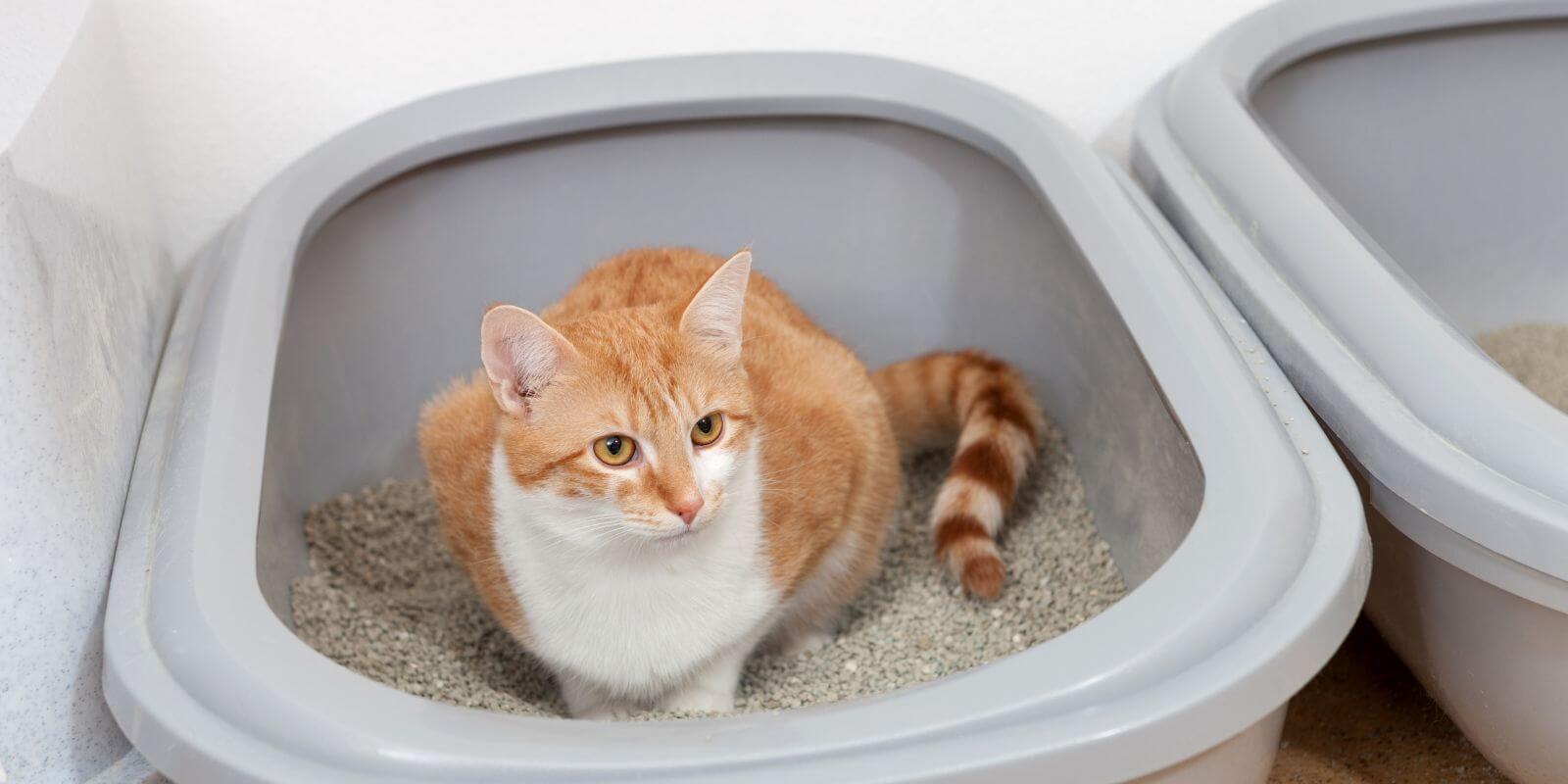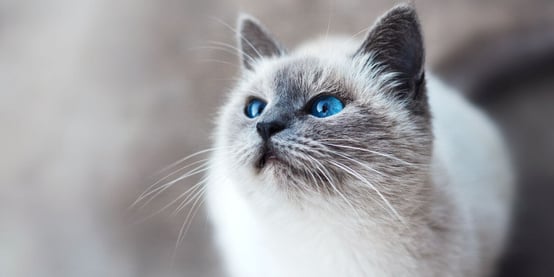Having a cat that is not using the litter box can be incredibly frustrating! Unfortunately, it can also be a common problem, occurring in about 10% of cats. Eliminating the outside of the litter box is one of the top reasons cats are surrendered to shelters, which often leads to euthanasia. Our cats don’t eliminate from the litter box because they are stubborn or spiteful, but rather because they are trying to indicate that their needs (social, physical, or medical) aren’t being met. Since cats can’t talk to us, we typically have to do some investigative work in order to determine the underlying cause.
Causes of Inappropriate Eliminations
Medical Causes
If your cat starts urinating or defecating outside of the litter box, the first thing you should do is schedule an appointment with your veterinarian. It is critical to rule out any underlying medical issues that may be occurring.
Some common medical causes include:
- Bacterial Urinary Tract Infection
- Bladder or Kidney Stones
- Idiopathic Cystitis
- Osteoarthritis Pain
- Metabolic diseases like kidney disease, hyperthyroidism, and diabetes mellitus
- Constipation
Your veterinarian will perform a thorough examination of your cat to narrow down the list of potential causes. They will also want to perform a blood profile, a urinalysis, a urine culture, and radiographs. With this information, they will be able to tell you if there is a medical issue and determine the appropriate treatment course.
Sex hormones can also play a role in eliminating outside the litter box, so if your pet is not yet neutered, this will be a great chance to get that procedure scheduled.
Litter Box Issues
If your cat isn’t comfortable with their litter box, it is very likely they will avoid using it. We want to make using the litter box a positive experience, and we want that litter box to be as attractive to your cat as possible. We don’t want your cat to complete a Ninja Warrior course every time they need to use the bathroom!
Here are some pointers for your cat’s litter box:
- You should have one more litter box than you have cats in your home
- You need one litter box on every level of your home
- The litter box needs to be 1.5 x the length of the cat from the nose to the tip of the tail. A box that I recommend to my clients is the Kitty Go Here Senior Litter Box. Other suggestions include painter trays and long, shallow storage bins
- The litter box should not be hooded; most cats prefer an un-hooded box
- The box should be located in a private area
- The litter box should be located away from machines that can turn on automatically (water heater, washer/dryer, etc)
An excellent resource for pet owners on litter boxes is the Ohio State University Indoor Cat Initiative. If your cat is eliminating outside of the litter box, I would definitely look at all the information they have available.
Litter Issues
There are numerous types of litter available to cat owners. Research shows us that most cats prefer fine-grain, clumping, and unscented litter. But, every cat is different!
Here are some tips on managing your cat’s litter:
- The box should be scooped daily to keep the box clean and to decrease odours. You may need to scoop multiple times a day if you have several cats using the same box.
- The box should be emptied and washed every 1-2 weeks with a mild dish detergent.
- The depth of the litter should be 1-2 inches.
- Multiple cat households may need litter boxes with different litter types, depending on the cat's preferences.
- If you don’t know your cat’s preference, you may need to try several varieties in different boxes to see which one they gravitate towards.
Environmental Stressors
Some cats that are experiencing high levels of stress will start to develop issues with their litter box. Cats can develop stress from a multitude of causes:
- Inter-cat conflict within a home
- Stray or feral cats
- Introduction of a new baby
- Introduction of a new cat or dog in the home
- Home construction
- Change in owner's work schedule
These issues can sometimes be more challenging to deal with than a medical problem! And, it has been shown that increased stress will increase a cat's chances of developing idiopathic cystitis. But, there are solutions to helping your cat work through their stress and anxiety.
If there is a stray or feral cat around, we need to deter it from coming onto your property. You can close the blinds to prevent your cat from seeing the offending intruder, but they can often still smell their presence. It will help to reach out to your neighbours to ensure no one is feeding this outdoor cat. Some humane deterrents are also available to scare cats away from your yard.
It is always helpful to increase your cat's interactive playtime when they are going through a period of change or stress. Cats are super motivated by their instincts to hunt, catch, kill, and eat their prey. Giving them an outlet for this energy can help reduce overall stress. When you play with your cat, you want to be fully engaged with them. Since cats don’t have a lot of endurance, short sessions where you play, let them rest, then go back to playing can be really effective in tiring them out!
Inter-cat conflicts can be incredibly challenging. If this is occurring, it is best to work with a board-certified veterinary behaviourist or a positive reinforcement trainer that specializes in cats. Your veterinarian should be able to direct you to these sources in your area.
Sometimes, we will need medications to help reduce your cat's overall anxiety and stress.
- Feliway is a pheromone that is clinically proven to reduce stress and anxiety in cats. This can be purchased as a wall diffuser or as a spray.
- Calming Care is a probiotic containing the bacteria Bifidobacterium longum 999 which works on the gut-brain axis to reduce overall anxiety and cortisol levels. This probiotic is given daily and takes ~6 weeks to take effect.
- There are several supplements available that contain calming amino acids and plant extracts. Some examples of these supplements include Solloquin, Zylkene, and Anxitane.
- If the situation is bad enough, your veterinarian may need to prescribe medications to help with your cat's anxiety. They will know which medications are best based on your cat's individual needs.
As you can see, there are numerous potential causes for cats to have inappropriate eliminations. But don’t get discouraged! It may take some trial and error, but by working with your veterinarian, you will be able to find a solution that works for you and your cat.




